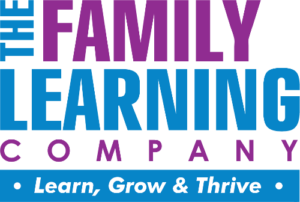How Family Learning Can Benefit The Community As A Whole
January 16, 2024

Family learning initiatives hold immense potential to positively impact entire communities, transcending individual benefits to create widespread improvements in literacy, education, and social cohesion.
Addressing Illiteracy and Enhancing Literacy Rates:
Family learning programs play a pivotal role in combating illiteracy by offering a platform for improving literacy skills across generations. By incorporating activities focused on phonemic awareness, phonics, reading comprehension, and utilizing family learning software, these initiatives empower families to engage in shared reading, learning activities, and discussions. As adults enhance their literacy skills, they become better equipped to support their children's education, thereby creating a ripple effect that improves overall community literacy rates.
Strengthening Family Engagement and Social Bonds:
Strong family engagement nurtures stronger communities. Family learning encourages active participation of parents, children, and even grandparents in educational activities. This engagement strengthens familial bonds, fosters open communication, and encourages collaborative learning environments at home. Families become active partners in education, promoting a culture of lifelong learning that extends beyond households and into the wider community.
Promoting Multi-generational and Cultural Learning:
Intergenerational learning experiences in family literacy programs celebrate diversity and cultural richness within communities. They provide spaces where different generations share their knowledge, cultural backgrounds, and experiences. This cultural exchange fosters understanding, respect, and appreciation for diverse traditions, languages, and perspectives. Communities become more inclusive and culturally vibrant as individuals learn from one another, promoting tolerance and unity.
Boosting Economic and Social Development:
Improved literacy skills through family learning can have far-reaching impacts on economic and social development. Adults with enhanced literacy skills are more likely to secure better job opportunities, contributing to a more skilled workforce. As community members become more literate and educated, it strengthens the social fabric, reduces poverty rates, and enhances the overall quality of life within the community.
Empowering English Language Learners and Diverse Communities:
Family learning initiatives cater to the needs of English Language Learners (ELLs) and diverse communities by fostering language development and literacy. By providing resources, guidance, and interactive family literacy activities, these programs support ELLs in improving their language proficiency within a supportive family environment. This empowerment of diverse linguistic groups contributes to greater inclusivity and equity within the community.
Fostering a Culture of Learning and Civic Engagement:
A community where family learning is valued tends to foster a culture of learning and civic engagement. Families engaged in reading activities, utilizing family learning software, and participating in educational programs demonstrate a commitment to education. This involvement often extends to community-wide initiatives, encouraging civic participation, volunteering, and a collective commitment to educational advancement.
How Family Learning Can Benefit The Community As A Whole
A family that learns together grows together. And when it blossoms, it can contribute to the community and help others. If you want to have a successful family, start by learning together. If there are adults at home who can’t read or write, teach them how to. Also, if you have little kids who will soon start school, start preparing them and teaching them at home. Look for a community-based family literacy program where both children and adults can benefit, and all can learn together as a family.
Families that realize the significance of learning together and implement it often thrive better than others that don’t. They also produce independent, confident individuals and members who can contribute to society. Let’s look at some of the advantages of family learning:
It helps adult members in the family who can’t read or write learn and become independent.
Adults who can’t read or write often rely on others for various purposes, such as filling bank documents, checking medical prescriptions and appointments, and more. And this can also lower their self-esteem and confidence. But when they can understand basic things and can read and write independently, it enables them to help themselves, increasing their sense of confidence and independence. Family learning is about learning together as a family, teaching members who are illiterate to learn.
It prepares children for education and encourages them to learn.
Family learning also helps prepare children for education and encourages them to learn. Consider keeping a specific family learning time to make family learning consistent and help children develop the habit of reading or studying during that time. It is also advisable to use the best family learning program that makes it interesting for kids, acquiring their attention.
It is fun!
Family learning is also fun! Grandparents, parents, children, and even aunts and uncles can participate. You can also make it more enjoyable by incorporating learning games and activities.
Using the best family learning software.
The best family learning software is an excellent way to enhance learning skills, no matter what stage in life. Among thousands of other learning activities, the best software includes the six necessary literacy components. They are:
Phonemic Awareness: an awareness of sounds in language and how they compose words,
Decoding: the ability to figure out exotic words and learn to read them automatically,
Vocabulary: to know a satisfactory number of words to comprehend text passages,
Fluency: the ability to read quickly and without mindful attention,
Comprehension:the ability to understand the meaning, substances, and intention of any text, and
Writing: the ability to express opinions in written sentences and paragraphs.
Family learning programs help workspaces
The best family learning program or software also works wonders in helping employees and their families. There are tons of learning activities that anyone, including working professionals, can choose and learn. As a result, it helps employees become more productive and reduce stress, increases employee retention rates for companies, boosts job satisfaction, and helps everyone become contributing members of society. Be sure to check out company benefit learning programs and incorporate them into your workspace.
In conclusion, family learning initiatives not only benefit individual participants but also yield significant positive effects on communities as a whole. By addressing illiteracy, strengthening family bonds, promoting cultural understanding, enhancing economic opportunities, and fostering a culture of learning and engagement, these programs create a ripple effect that contributes to the overall well-being and prosperity of communities. Through collective efforts and shared learning experiences, family learning becomes a cornerstone in building stronger, more cohesive, and thriving communities.
Check our website if you’re looking for the best family learning software that benefits children, adults, and working professionals.
